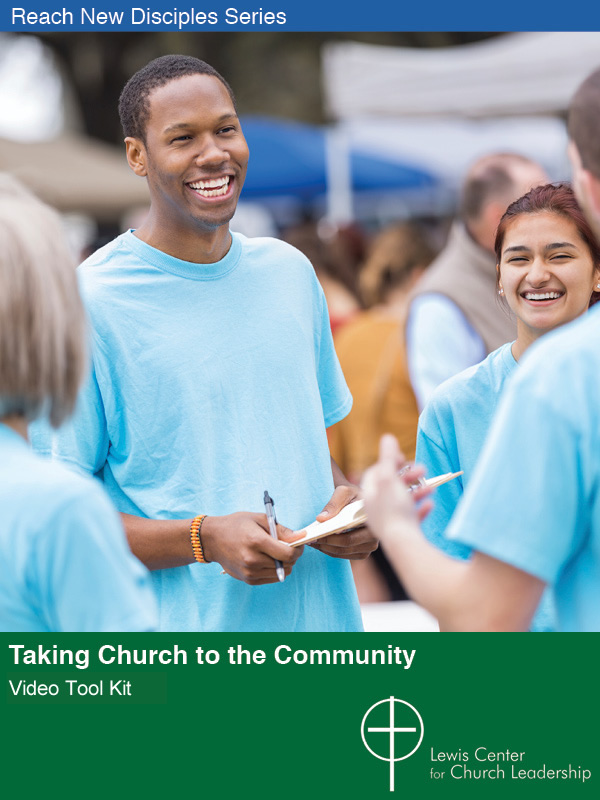Churches have long assumed that new people would engage their congregations by first attending worship. When they are not growing and attracting new people, people blame the style of worship, the music, the preacher, the worship time, the paint color in the sanctuary, or the length of the service. Yet, it may not be any of those things. Worship was a strong mechanism for engaging new people when church attendance and Christianity was a foregone conclusion in our communities. Today, Christianity is an option among many options for living out life.
With growing numbers of young people who have no religious affiliation and no previous exposure to Christianity or faith communities, the church must find a different and more familiar way to engage new generations.
If we understand corporate worship as a relational and responsive gathering, why do we invite people who have no relationship with God to worship? It’s like asking a stranger to jump head first into one of our most sacred and long-held family traditions. If we believe people worship because they are in relationship with Christ and others, why use worship as the primary mechanism to connect people to Christ and church? With growing numbers of young people who have no religious affiliation and no previous exposure to Christianity or faith communities, the church must find a different and more familiar way to engage new generations.
Congregations cannot stand by passively and expect people to walk through the front doors of the church on Sunday morning. Churches must break the traditional rules of evangelism and provide multiple, creative and easily-accessible entry points to faith communities.
Missions and Social Activism
Mission ministries can be an organic and familiar place of connection and belonging for new generations who are much more likely to wake up to build a Habitat House than they are to wake up for worship. Service allows them to meet one of the primary longings in life — to have and add meaning in and to the world. And, it relates to their educational objectives as many secondary schools, colleges, and universities require their graduates to complete ongoing community service hours as a part of their academic program.
Small Groups
Small groups provide built-in safe spaces to grow, change, learn, evolve, and connect with God and people. When offered during nontraditional times and in nontraditional spaces, small groups provide nonthreatening and convenient entry places for new people to enter faith communities.
Preschools and After School Programs
Good, safe, affordable childcare is hard to come by today. Since many young families do not live near their families of origin, tight-knit preschool communities can become a meaningful place of belonging. In church-related childcare programs, families can come to see the church as an additional place of connection and belonging, if they are correctly and lovingly engaged by the congregation. But for these programs to be good entry points, they must be deeply connected to the life of the church, not just tenants using a church facility.
Age-level Ministries
Solid, nurturing, age-level ministries for children, youth, young adults, and older adults can become sustaining, supporting, and directing entry points for new people, if they are well-integrated into the full life of a congregation. They signal that the church can and wants to help navigate challenges unique to an individual’s stage of life.
Affinity Groups
Affinity groups form around a shared interest, need, idea or belief — such as parenting or scrapbooking groups, yoga, or personal finance classes. While small groups generally focus on spiritual development, affinity groups are more community-based, open, and always invitational. Churches can attract newcomers by creating affinity groups that respond to community needs.
Web, Social Media, Digital Engagement
Social media, web presences, and digital engagement allow new people to feel as if they belong before they step foot on the property or participate in any of the congregational ministries. These online avenues of participation signal that a church is interested in hesitant connectors, even if they are not yet physically present. They provide important information on the congregation’s beliefs and actions. And informal social media engagement can be a window on the human and relational dimensions of congregational life.
This article is adapted from Douglas and Jasmine’s new book, Not Safe for Church: The Ten Commandments for Reaching New Generations (Abingdon Press, 2014). Used by permission of the publisher. Not Safe for Church is available through Cokesbury and Amazon.
Related Resources:
- Shifting Entry Points by Susan Beaumont
- Mission as the Emerging Entry Point for New People by Lovett H. Weems, Jr.
- 50 Ways to Welcome New People
- The New Welcome Resource







